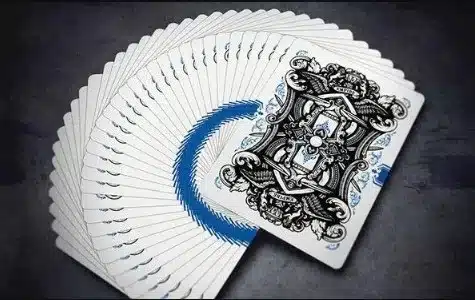Introduction
Playing cards have held a significant place in various cultures around the world, serving not only as a source of entertainment but also as a medium for social interaction and cultural exchange. The historical origins of playing cards can be traced back to ancient civilizations, which have shaped their evolution into the diverse forms we see today.

Historical Context
1. Origins of Playing Cards
The earliest records of playing cards date back to the Tang Dynasty in China during the 9th century, where they likely originated from domino-like games. From China, playing cards spread to India, Persia, and eventually Europe, each region contributing unique elements to their design and gameplay.
2. Evolution of Card Games
The introduction of the printing press in the 15th century revolutionized card production, making playing cards more accessible to the general public. This innovation not only standardized designs but also allowed for custom playing cards printing, enabling individuals and businesses to create decks that reflected personal or cultural themes.
Regional Variations in Card Games
1. North America
In North America, card games like Poker and Rummy dominate the landscape. Poker, in particular, has evolved into a competitive sport, showcasing strategies that require a deep understanding of human psychology and chance.
2. Europe
France
France is known for its intricate designs and the creation of luxury playing cards. French card games, such as Belote and Tarot, emphasize skill and strategy, often played in social settings that strengthen community bonds.
3. Asia
India
India boasts a rich variety of card games, including Rummy and Teen Patti. These games not only entertain but also serve as a medium for teaching strategy and risk assessment, highlighting the cultural significance of gameplay.
4. Australia
In Australia, the game of 500 stands out with its unique bidding process. This regional variant emphasizes teamwork and communication, reflecting the communal spirit prevalent in Australian culture.
5. Middle East
Pişti, a traditional Turkish card game, has deep historical roots and is played extensively in social gatherings. It showcases the Middle Eastern tradition of storytelling and interaction through gameplay.
Cultural Significance of Card Games
1. Social Interaction
Card games play a crucial role in fostering relationships and community bonding. Whether it’s a family gathering or a casual meet-up with friends, the act of playing cards brings people together, creating lasting memories.
2. Educational Value
Beyond entertainment, card games can teach cultural norms and strategies, offering insights into various societies. For instance, the rules of a game often reflect the values and behaviors appreciated within a culture.
Choosing the Right Playing Cards
1. Types of Decks
When selecting playing cards, one can choose between standard decks and specialized options, such as Hanafuda. Luxury playing cards often feature intricate designs and high-quality materials, making them ideal for collectors or special occasions.
2. Considerations for Purchase
Quality, design, cultural relevance, and intended use are key considerations when purchasing playing cards. Custom options allow players to personalize their decks, ensuring a unique gaming experience.
Conclusion
In conclusion, the diversity of playing card games across cultures highlights the rich tapestry of human interaction and creativity. Exploring different games not only enhances one’s understanding of various traditions but also fosters a sense of global community. Embrace the opportunity to discover unique playing cards and their stories, celebrating the cultural significance they hold.
